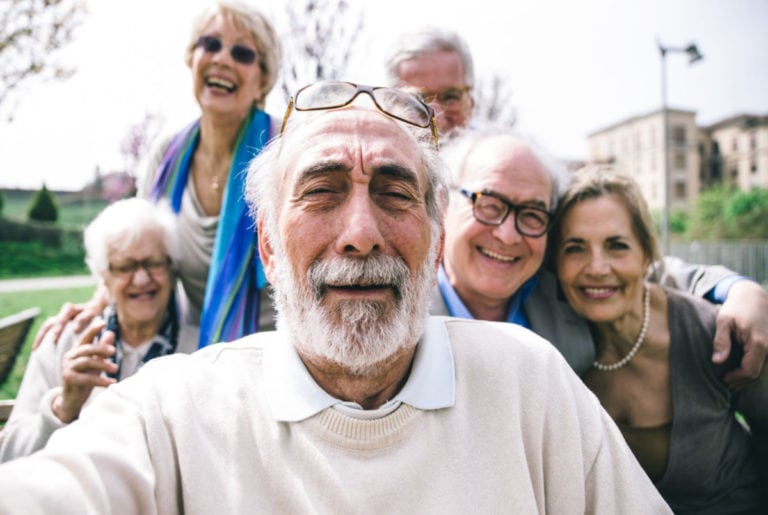“THE MORE WE GET TOGETHER THE MERRIER WE’LL BE”
So says this age-old children’s song. But the need for human companionship goes beyond children’s tunes.
It is a fact that we all crave and need company, love, and support.
This need does not diminish as we age. In fact, the need to connect is a vital part of creating a healthy life for seniors.
We at Kabb Law cannot emphasize the importance of socializing for seniors strongly enough.
Health Benefits of Socializing for Seniors
Seniors need to connect and be involved to maintain both mental and physical health.
According to The National Institute on Aging, “60-year-olds who visited with friends almost daily were 12 percent less likely to develop dementia than those who only saw one or two friends every few months.”
The same study showed that seniors who are isolated and lonely run a higher risk of high blood pressure, heart disease, obesity, depression, and dementia.
To add to this, we pulled up a meta-physical report from 2015 which stated that loneliness and social isolation are comparable to other well-established risk factors for mortality.
Socializing with friends is a major key. As hard as it may be for some of us to hear, it is the interaction with friends, not family, that makes the difference in reducing dementia in seniors.
Andrew Sommerlad, Ph.D., a lead researcher pointed out that “contact with friends is more cognitively stimulating because we can choose how many friends we have, but we have less control over how many relatives we can see.”
The health benefits of socializing for seniors with friends are that it
– reduces stress,
– encourages physical fitness,
– reduces anxiety and depression,
– increases longevity, and
– contributes to maintaining self-esteem. What more could one ask for?!
Socializing for Seniors: 7 Suggestions to Get Social
Here are some suggestions for how our seniors can get more socially active:
- Be a volunteer:
Whether it’s a few times a week or only a few times a month, volunteering adds structure to your life and welds your connections to other volunteers. Your volunteer opportunities are very broad. It could be cooking, teaching Maj Jong, knitting, quilting, etc. Whatever you have considered being a recreational activity can be a great learning source for someone else. - Seek out a new hobby.
Maybe you’ve been a baker your whole life but have really longed to try your hand at pottery. Or perhaps you’ve played Scrabble your entire adult life but have really longed to learn how to play bridge. Now, finally, you have the time to pursue these skills. - Sit in on a college class.
Community colleges and some state universities allow senior citizens to monitor any of their classes, as long as they’re not filled. This is your chance to take a course that simply interests you and is not one of the required courses you needed back in your college days. And -no worries about your final grade – just pure enjoyment. - Learn to dance.
Many seniors have turned to dance for a combination of physical activity and social connectedness. Dancing is wonderful because it combines both cognitive and social benefits – you’re learning moves, you’re doing something physical that stretches your mind, and you’re interacting with people. - Take a trip.
Traveling and learning about new cultures is a great way to expand your mind. Traveling locally and learning about different peoples’ histories in your own city is also a way to grow and expand your horizons. Go alone and meet all new people, or go with a friend or two. - Pet sitting.
If you love animals and don’t have easy transportation available, watching the dog of a working family during the week is rewarding in so many ways. First, you get the companionship of a wonderful pet, second, you are establishing relationships with people younger than you with experiences that will be fascinating to hear about. - Lastly, learn about social media.
If you are stuck at home alone, the Internet can connect you with family and friends and will keep loneliness at bay.
We haven’t listed it above, but if loneliness has overcome you, please call Kabb Law and speak with our social worker at 216-991-5222. We are always here to help!

